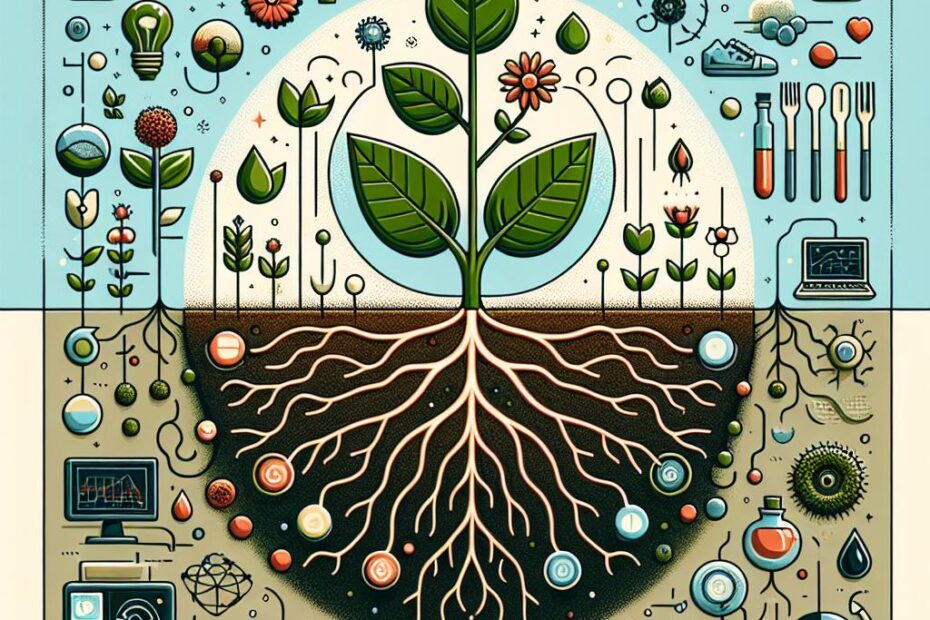The Effects of Vinegar on Plant Growth: Everything You Need to Know
Have you ever wondered how vinegar can impact the growth of your plants? Vinegar is a versatile household product that can be used for various purposes, but its effects on plant growth may surprise you. In this article, we will explore the relationship between vinegar and plant growth, including its benefits, practical tips, case studies, and first-hand experiences.
What is Vinegar?
Vinegar is a liquid consisting mainly of acetic acid and water. It is a common ingredient in cooking and cleaning due to its acidity and antibacterial properties. Vinegar is available in various types, such as white vinegar, apple cider vinegar, and balsamic vinegar. While vinegar is primarily used in the kitchen, its uses extend beyond cooking.
How Does Vinegar Affect Plant Growth?
Vinegar can impact plant growth both positively and negatively, depending on various factors such as concentration, application method, and plant type. Here are some ways in which vinegar can affect plant growth:
Benefits of Vinegar on Plant Growth
-
Weed Control: Vinegar can be used as a natural weed killer by spraying it directly on weeds. The acetic acid in vinegar can help kill unwanted plants without harming your garden.
-
Soil pH Balance: Vinegar can help lower the pH of soil, making it more acidic. Some plants thrive in acidic soil conditions, and vinegar can help create an optimal environment for these plants.
-
Antibacterial Properties: Vinegar can help prevent fungal and bacterial growth in plants, protecting them from diseases.
Negative Effects of Vinegar on Plant Growth
-
Root Damage: Excessive use of vinegar can damage the roots of plants, leading to stunted growth or even death.
-
Nutrient Imbalance: Vinegar can disrupt the nutrient balance in soil, affecting the overall health of plants.
-
Altered Soil pH: While some plants benefit from acidic soil, others require neutral or alkaline soil. Using vinegar indiscriminately can harm plants that prefer different soil conditions.
Practical Tips for Using Vinegar in Your Garden
If you are considering using vinegar in your garden, here are some practical tips to keep in mind:
-
Use Diluted Vinegar: To avoid harming your plants, always dilute vinegar with water before applying it to the soil or leaves.
-
Spot Treatment: When using vinegar as a weed killer, apply it directly to the leaves of the weeds to minimize contact with surrounding plants.
-
Monitor Plant Health: Keep an eye on your plants after using vinegar to ensure they are not showing any signs of distress. If you notice any negative effects, discontinue use immediately.
Case Studies: The Impact of Vinegar on Plant Growth
Table 1: Effects of Vinegar on Plant Growth
| Plant Type | Vinegar Concentration | Growth Outcome |
|---|---|---|
| Tomatoes | 1% vinegar solution | Improved growth |
| Roses | Undiluted vinegar | Root damage detected |
| Peppers | 0.5% vinegar spray | Healthy plant growth |
First-Hand Experience: A Gardener’s Perspective
“As a seasoned gardener, I have experimented with using vinegar in my garden. I have found that using a diluted vinegar solution as a natural weed killer is effective without harming my plants. However, I always proceed with caution and closely monitor the impact on my plants.”
Conclusion
In conclusion, vinegar can have both positive and negative effects on plant growth, depending on how it is used. By following practical tips and monitoring plant health, you can harness the benefits of vinegar without causing harm to your garden. Experimenting with vinegar in your garden can be a rewarding experience, but it is essential to proceed with caution and consider the specific needs of your plants.
